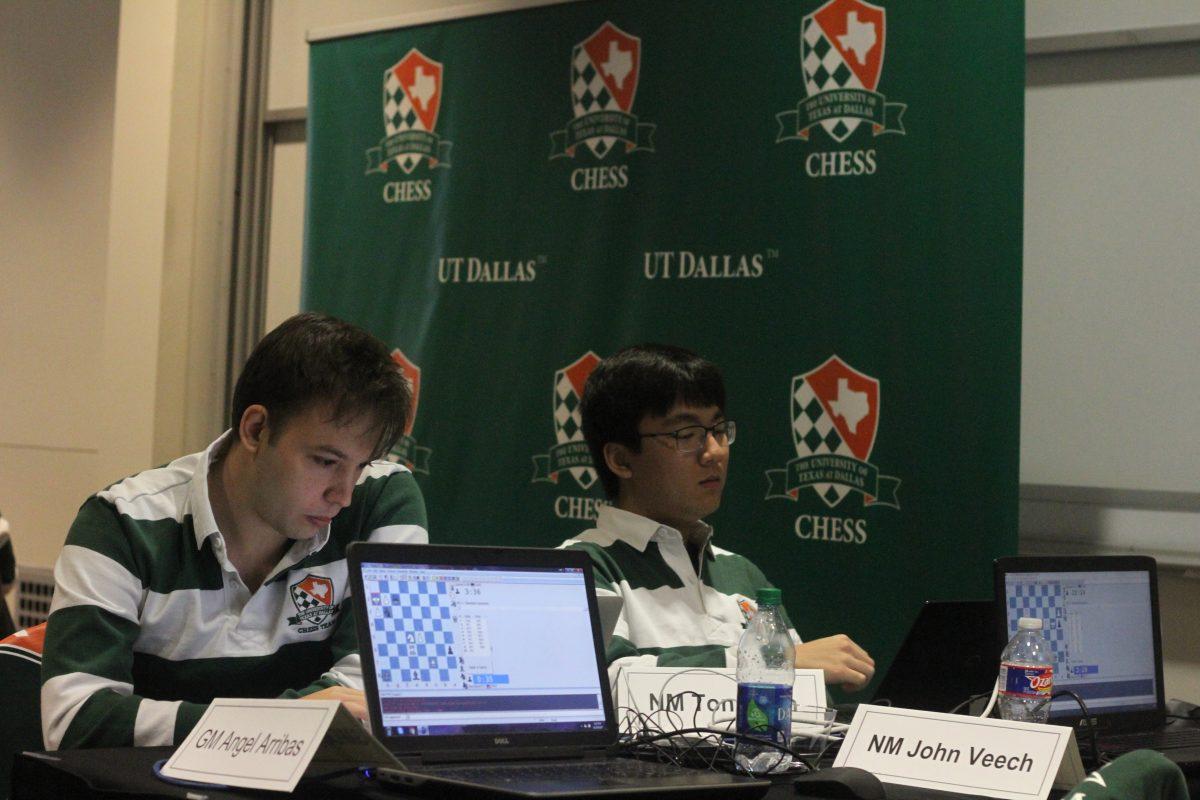Throughout its 21 years, the UTD chess program has evolved through improving recruitment processes to keep up with the increasing competitiveness in the American collegiate chess scene.
Just last month, the chess team defeated Texas Tech and UT Rio Grande Valley to place first in Texas. The program has also been ranked first in the nation 10 times.
Coach Rade Milovanovic, Director James Stallings and Assistant Director Luis Salinas have worked with the program for over a decade, recruiting stronger players and improving UTD’s results in major tournaments. They said the biggest change has been the rise of competitor schools.
“When we first started, the main competitor was UMBC. It was them or us (in the championships),” Milovanovic said. “Now the competition is much greater. You have Webster University, St. Louisville, Texas Tech, Rio Grande. It makes everything much more challenging. We have to recruit better, we have to play better.”
Stallings said even with one or two Grandmasters, one of the highest titles in competitive chess, the team had dominated in the past.
“Now we have seven Grandmaster and five International Masters, and it’s very hard to win, and it’s required,” he said. “There is a limited pool of talent, not even in the U.S. but around the globe, and we have to recruit those strong players to improve our chances.”
Stallings said the recruiting process is much more intensive than it was previously.
“We email and Skype prospective players, and in turn they reach out to us because we do advertise in popular chess magazines or chess websites,” he said.
Examples of well-known chess media with UTD ads are “New in Chess,” a magazine, and “Chessdom,” a news website.
Milovanovic said the internet has been critical in recruiting, making it easier to recognize which players are strongest. He even has a list of the top 100 young players.
“Nowadays, everything is online so the chess world is smaller and we can reach more players around the world,” he said.
Alumni also assist in recruiting efforts whenever they spread news of the program to other players. Razvan Preotu, a computer science freshman from Canada, applied to the chess team after a recommendation from Arthur Caluger, a former UTD chess player.
“The team is really strong and there is a lot of financial support,” Preotu said. “I also heard the coach and teammates were good people, so I made the decision to join.”
Stallings said the university and the chess program have a symbiotic relationship.
“We are very pleased with the support that the university gives us in terms of resources and financial aid,” he said. “In addition, this program gives UTD more PR than almost everything else because we are competing at the highest level.”
Academics, money and accessible resources are the main reasons players choose to come to UTD, Stallings said.
“The players know we have a good chess program but I say, ‘Look, as a chess player, you are still going to be spending most of your time in classes, and your degree is going to be of real value here,’” he said. “We are trying to improve our training resources all the time, so we are getting better computer resources as well. It helps the players, especially when they have to spend so much time studying for classes already.”
Preotu said the hours he spends on chess at UTD are much more valuable for improving his skills.
“At my high school, there was no one I could really work with for chess,” he said. “Even though I do spend less hours per day on chess, here I can talk to coach, share ideas and practice some games with everyone. It keeps me sharp.”
The last time the chess team won a national championship was in 2012. This year, a roster with a multitude of strong players may help the team win first place again, Stallings said.
“In our last tournament, their A teams played evenly with our A teams,” he said. “It was our B teams that were stronger than their B teams, and so the depth of our roster makes a big difference.”
Salinas said his primary motivation is wanting to help out the university as a whole through the chess program.
“It’s one of UTD’s brands,” he said. “We are known for brain games, and the chess program helps the university grow, which is the big reason I want to continue working here.”













